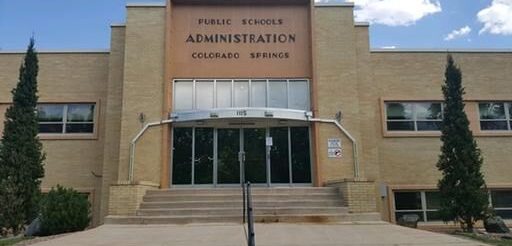D-11 applies for innovation zone to expand STEM education

In an effort to better prepare local students for Colorado Springs’ burgeoning industries, District 11 is hoping to provide a new option aimed at kickstarting careers into the tech field. The Colorado Springs School of Technology (CSST) would be an innovation zone in a partnership between the district, local colleges, industries and governments to increase specialized STEM career opportunities for students in the area. On Wednesday night, during their regular meeting, the D-11 board of education approved an innovation zone application to submit to the state board of education for approval. Rather than an innovation school, an innovation zone utilizes existing infrastructure across multiple facilities to offer the type of specialized curriculum that is offered at a standalone school. If approved, the CSST zone will incorporate the UCCS Cybersecurity and Research Center and the National Cybersecurity Center for industry professionals to instruct D-11 in addition to licensed educators. Specifically, the innovations detailed in the application were space leadership, applied cyberscience and ethical entrepreneurship with an aim to prepare students for careers in aerospace, defense, cybersecurity, information, and space technology. In addition to offering specialized coursework for these fields, CSST plans to offer students dual enrollment opportunities at UCCS and Pikes Peak State College, internships and certifications through its coursework. The school hopes to fill current job needs in Colorado Springs’ local tech industries by offering unique curricula not currently offered at district high schools. Board members also expressed a hope that the school would attract other students to the district and increase enrollment. Board President Dr. Parth Melpakam noted the unique opportunity the school could provide by allowing students regularly meet with industry leaders and professionals in a classroom setting. “That is incredibly motivating for them to see that,” he said. The idea for the school came together when UCCS and Pikes Peak State College along with the Air Force Academy, the National Cybersecurity Center, The Space Foundation, and the chamber of commerce all successfully applied for a grant by the National Science Foundation (NSF) for cybersecurity research. With the local ecosystem for this industry already in place, the NSF’s prioritization of education and the need to increase its workforce, exploring the possibility of the innovation zone began once Superintendent Michael Gaal expressed similar interest with stakeholders. During the meeting, Gaal said the proposal is a response to what he’s been hearing from local families in favor of school choice that he believes the school could provide a niche experience for select students. “We’re responding to what we believe is the demand of the market,” he said. Gaal, along with UCCS Chancellor Jennifer Sobanet, National Cybersecurity Center CEO Harry Raduege, Pikes Peak State College President Lance Bolton, and Colorado Springs Chamber of Commerce CEO Johnna Reeder Kleymeyer, would be among those serving as the school’s board of directors if it were to get approved. Different members of the public expressed both support and concern with the proposed innovation zone. Those in favor of it believed it offered more school choice and learning opportunities for students while those against it voiced concerns over hiring course instructors without a teaching license and straying too far from current public school curricula. Board member Julie Ott also voiced concerns over hiring unlicensed teachers while adding that the current proposal isn’t held to the same level of detail and scrutiny of a charter school application. Counselors, social workers, special education and how exactly the district planned to fund the school were among the factors missing in the current proposal. She also said that investing deeper in the district’s current high school school CTE programs could accomplish many of the things this plan is proposing. “I think this is siloing some of our students and that’s a concern for me,” she said of the current proposed application. Conversely, other board members believed that industry professionals rather than licensed educators could provide unique approaches to teaching through real-world perspectives and that the zone was an innovative solution to meeting different student needs. The board ultimately voted to approve the application 6-1. With the initial hope being to open the school in the fall of 2024, the application must now get approved by the Colorado Board of Education before further details like a high school location get decided and ultimately approved by the district board.
